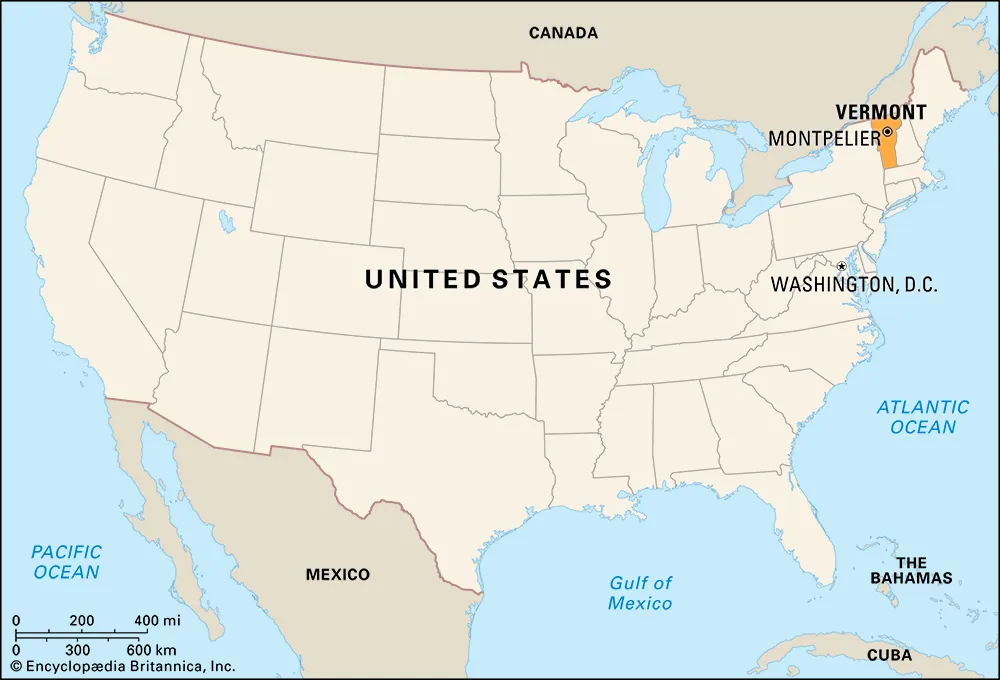
What is a Registered Agent in Vermont?
In Vermont, a Registered Agent acts as the official point of contact for a business entity, such as a corporation, limited liability company (LLC), partnership, or any other legal entity registered with the state. This agent is responsible for receiving important legal and tax documents on behalf of the business, including service of process (legal actions), government communications, and notifications from the Secretary of State. The role of a Registered Agent ensures that there’s a reliable method for the government and other parties to communicate with a business.
Here are some key points about Registered Agents in Vermont:
Who Can Be a Registered Agent: A Registered Agent in Vermont can be either an individual who resides in Vermont or a business entity authorized to conduct business in Vermont. They must have a physical address in the state (known as a registered office), not just a P.O. Box, and must be available during normal business hours to receive documents.
Legal Compliance: Appointing a Registered Agent is a legal requirement for conducting business in Vermont. It ensures that the business can be legally contacted if necessary.
Privacy and Efficiency: For some businesses, using a Registered Agent service (a third-party provider) can help maintain privacy and ensure that important documents are handled efficiently and promptly, reducing the risk of missed deadlines and legal complications.
Changing a Registered Agent: If a business wishes to change its Registered Agent, it can do so by filing the appropriate forms with the Vermont Secretary of State and paying any required fee.
Public Record: The name and address of a business’s Registered Agent are public record and can be searched through the Secretary of State’s website. This transparency helps maintain trust in the business environment.
How can I determine if my Vermont business needs a Registered Agent?
If your business falls into one of the following categories, it is likely that you will need a Registered Agent in Vermont:
Formal Business Entity: If your business is registered as a corporation, limited liability company (LLC), limited partnership (LP), limited liability partnership (LLP), or any other type of formal business entity with the Vermont Secretary of State, you are generally required to have a Registered Agent. This applies to both domestic Vermont businesses and foreign entities registered to do business in the state.
Foreign Business Operating in Vermont: If your business is formed in another state or jurisdiction but plans to conduct business in Vermont, you will typically need to appoint a Registered Agent in Vermont. This ensures that there is a local point of contact for service of process and official government communications within the state.
Privacy and Convenience: Even if your business is not legally required to have a Registered Agent, you might choose to appoint one for privacy and convenience reasons. Having a Registered Agent can help shield your personal or business address from public records and ensure that important documents and legal notices are managed by a professional.
If you are unsure whether your Vermont business needs a Registered Agent, it is recommended to consult with legal counsel or reach out to the Vermont Secretary of State’s office for specific guidance based on your business’s circumstances and legal requirements.
What does a Registered Agent do for a Vermont business?

A Registered Agent serves as an essential component of a business’s operational structure in Vermont. The agent’s responsibilities encompass several crucial areas, vital for ensuring regulatory compliance and facilitating timely communication with governmental and legal entities. Here are the primary duties:
Service of Process: One of the key roles of a Registered Agent is to receive service of process on behalf of the business. This includes legal documents such as summons, complaints, and other legal correspondence related to lawsuits. It ensures that the business can respond appropriately to legal actions.
Official Government Communications: The Registered Agent acts as the designated receiver for official communications from state agencies. This includes notices from the Vermont Secretary of State, tax communications, and other regulatory information essential for the business’s compliance with state laws.
Tax Notices and Documents: Besides legal notices, Registered Agents may also receive tax-related documents and notifications on behalf of the business. Their role involves ensuring these critical documents are promptly forwarded to the business owners or managers for action.
Annual Reports: In Vermont, businesses are often required to file annual reports with the Secretary of State. While the Registered Agent is not typically responsible for filing these reports, they may receive reminders or notices regarding these filings and forward them to the business to ensure timely compliance.
The role of a Registered Agent is crucial in maintaining the legal standing of a business in Vermont. By facilitating the efficient receipt of and response to legal and tax-related documents, Registered Agents help businesses avoid penalties related to non-compliance and ensure they remain in good standing with the state.
Are there any legal requirements specific to Vermont when selecting a Registered Agent for my business?
Yes, Vermont has specific legal requirements that must be met when selecting a Registered Agent for your business. Adherence to these criteria is essential for ensuring compliance with state laws and maintaining good standing with the Secretary of State. Here are the key requirements:
Physical Presence: The Registered Agent must have a physical street address in Vermont, known as a registered office. This cannot be a P.O. Box. The address is necessary for receiving service of process and other legal documents in person.
Availability: The Registered Agent must be available at the registered office during regular business hours to receive legal documents and other communications on behalf of the business. This ensures that the agent can promptly accept and process any notices or legal actions.
Legal Eligibility: An individual serving as a Registered Agent must be at least 18 years old. If the Registered Agent is a business entity (such as a professional Registered Agent service), it must be authorized to do business in Vermont and in good standing with the state.
Consent to Serve: The Registered Agent, whether an individual or an entity, must consent to serve as the agent for the business. This consent is often documented through a formal appointment process and, in some cases, must be filed with the Vermont Secretary of State.
These requirements are designed to ensure that every business in Vermont has a reliable point of contact within the state for legal and official communications. It’s crucial for business owners and entities to carefully select a Registered Agent who meets these criteria to maintain compliance and support the smooth operation of the business within the state.
How often should a Vermont business update its Registered Agent information?

A Vermont business should update its Registered Agent information whenever there’s a change in the Registered Agent’s name, address, or availability. There isn’t a predetermined schedule for how often this information needs to be updated; rather, it’s based on the occurrence of changes that affect the Registered Agent’s ability to perform their role effectively. Promptly updating Registered Agent information is crucial for several reasons:
Legal Compliance: The State of Vermont requires businesses to maintain current Registered Agent information on file. This ensures that the state and other entities have the correct contact information for legal and official correspondence.
Avoiding Penalties: Failure to update Registered Agent information can lead to missed important legal notices, potentially resulting in penalties, fines, or default judgments against your business.
Maintaining Good Standing: Up-to-date Registered Agent information is a requirement for maintaining good standing with the Vermont Secretary of State. Good standing status is often necessary for various business activities, including financing and renewing business licenses.
To update Registered Agent information in Vermont, a business must file the appropriate forms with the Secretary of State’s office, usually accompanied by a filing fee. It is advisable for businesses to review their Registered Agent information periodically—such as annually or biannually—to ensure it remains accurate and up to date. Doing so helps ensure the smooth operation of the business and its compliance with Vermont laws and regulations.
What is the easiest way to get a Registered Agent in Vermont?
Finding a reliable and compliant Registered Agent is a crucial step for any business operating in Vermont. The easiest and most efficient way to secure a Registered Agent that meets all of Vermont’s legal requirements is to use a professional service. Among various options available, FormPros stands out as a leading provider of Registered Agent services.
Here’s why choosing FormPros for your Registered Agent needs makes sense:
Compliance Assurance: FormPros ensures that your business meets all Vermont state requirements by providing a Registered Agent with a physical address within the state, who is available during regular business hours.
Privacy and Protection: Using FormPros as your Registered Agent acquisition service helps protect your privacy and offers an added layer of security for sensitive documents, providing an official address for legal and tax documents separate from your home or business address.
Streamlined Setup: FormPros makes the process of appointing a Registered Agent quick and hassle-free. You can set up the service online, and the Registered Agent will handle all the necessary documentation and filings with the State of Vermont on your behalf.
Reliability: With a proven track record of handling important legal and tax documents, FormPros provides peace of mind knowing that your business’s critical communications are managed professionally and efficiently.
In addition to Registered Agent services, FormPros offers a wide range of business formation and legal document services, making it a one-stop solution for many of your business needs. Whether you are starting a new business in Vermont or need to appoint a new Registered Agent for an existing company, FormPros offers an effective, user-friendly, and affordable way to ensure that your business stays compliant and in good standing.
How do I change a Registered Agent in Vermont?

Changing a Registered Agent in Vermont involves a straightforward process. The state has made it relatively simple for businesses to update their Registered Agent information to ensure continuous compliance. Here are the steps to change your Registered Agent in Vermont:
Choose a New Registered Agent: Before making any changes, ensure your new Registered Agent meets all Vermont requirements. This includes having a physical address in Vermont and being available during regular business hours.
Obtain Consent: Vermont law requires that the new Registered Agent consents to the appointment. This consent does not need to be filed with the state but should be kept for your records.
Complete the Required Form: To officially change your Registered Agent, you’ll need to complete the “Statement of Change of Registered Agent or Registered Office by Entity” form. This form is available on the Vermont Secretary of State’s website.
Submit the Form and Pay the Fee: Once the form is completed, review it for accuracy and submit it to the Secretary of State’s office along with the required filing fee. The fee amount and payment options are detailed on the form and the Secretary of State’s website.
Confirmation: After processing, the Vermont Secretary of State’s office will typically issue a confirmation that the change of Registered Agent has been recorded. Keep this confirmation for your records.
It’s essential to ensure that there is no lapse in having a Registered Agent on file, as this could affect your business’s good standing in Vermont. Promptly updating your Registered Agent information when changes occur is an important part of maintaining your business’s compliance.
For businesses seeking convenience and assurance that the process is handled correctly, professional services like FormPros can assist with the change of Registered Agent and other compliance-related needs. Utilizing a professional service ensures that all requirements are met efficiently and correctly, allowing you to focus on other aspects of running your business.
Can I be my own Registered Agent in Vermont?
Yes, in Vermont, you can choose to be your own Registered Agent for your business. Whether you are forming a new business or managing an existing one, it is entirely permissible under Vermont law for a business owner or any individual associated with the business to serve as the Registered Agent, provided certain conditions are met:
Physical Address: You must have a physical address in Vermont. This cannot be a P.O. Box, but must be a physical location where you can receive documents in person.
Availability: You need to be available at the registered physical address during normal business hours to receive service of process, legal documents, and other official notices on behalf of the business.
Legal Age: You must be at least 18 years of age to serve as a Registered Agent.
While being your own Registered Agent can save on costs associated with hiring a professional service, it also comes with responsibilities and potential downsides to consider:
Privacy: As a Registered Agent, your address becomes part of the public record, which may affect your personal privacy.
Availability: You must consistently be available at the registered address during business hours to receive documents. This can be limiting, especially if you travel frequently for business or work outside a traditional office.
Compliance: You must ensure that all documents received are handled correctly and in a timely manner to maintain compliance with state laws. Missing important notices can lead to legal and financial consequences for your business.
For those considering whether to be their own Registered Agent or to hire a professional service, it’s important to weigh these considerations carefully. Professional Registered Agent services, such as FormPros, provide expertise in handling official documents and compliance, safeguard your privacy, and ensure that someone is always available to receive important communications, which can provide significant peace of mind and allow you to focus more on the day-to-day operations of your business.
Is it possible to appoint an out-of-state Registered Agent for your Vermont business?
In Vermont, your business is required to have a Registered Agent with a physical address within the state. This requirement ensures that the Registered Agent is available to personally receive important legal and tax documents on behalf of the business. Therefore, it is not possible to appoint an individual or entity located outside Vermont as your business’s Registered Agent for the purpose of meeting the state’s legal requirement.
However, many businesses choose to use professional Registered Agent services that may be based out-of-state but maintain a physical presence or office within Vermont. These services are considered in-state for the purpose of acting as Registered Agents because they satisfy the requirement of having a physical address in Vermont where they can receive documents during regular business hours.
Key points to remember when choosing a Registered Agent include:
Physical Presence: Whether an individual or a service, the Registered Agent must have a physical presence in Vermont.
Availability: Your Registered Agent must be available at their registered office during standard business hours to accept service of process and other important documents.
Compliance: Using a professional Registered Agent service can help ensure that your business remains in compliance with Vermont’s regulatory requirements, avoiding penalties or fees associated with lapses in having a Registered Agent.
If you are considering a professional Registered Agent service, look for reputable providers like FormPros. The Registered Agent you acquire offers compliance expertise and maintains the necessary physical presence in Vermont. This ensures that your Vermont business meets state requirements while also benefiting from the convenience and reliability of a professional service.
Are Registered Agents from Vermont responsible for any fees or taxes?

In Vermont, the role of a Registered Agent is primarily to act as an official point of contact for a business, responsible for receiving important legal and tax documents, including service of process. When it comes to the question of whether Registered Agents are responsible for any fees or taxes directly associated with the role, here are the key points to understand:
Registered Agent Responsibilities: A Registered Agent’s main responsibility is to reliably receive and forward to the business any documents, legal notices, and government correspondence. They are not responsible for paying taxes, fines, or fees that are attributed to the business itself.
Business Obligations: It is the responsibility of the business, not the Registered Agent, to ensure that all applicable taxes, annual fees, and other financial obligations are met. This includes state franchise taxes, federal taxes, and annual report filing fees.
Filing Fees: While there might be a fee associated with appointing or changing a Registered Agent in Vermont, paying this filing fee is the responsibility of the business. Any service fees for professional Registered Agent services are also handled directly between the business and the service provider.
Annual Report Filing Fees: Although Registered Agents may remind businesses of the need to file annual reports and other periodic filings, any fees associated with these filings are again the responsibility of the business, not the Registered Agent.
It’s important for business owners to understand that while Registered Agents provide a vital service, ensuring compliance and facilitating the formal communication process with the government, they do not assume the responsibilities for the financial obligations of the business. The distinction between the duties of a Registered Agent and the fiscal responsibilities of a business helps maintain clarity and compliance in the legal and regulatory landscape.
Sign Up for a Registered Agent in Vermont Now
State Specific Registered Agent Service
- Alabama
- Alaska
- Arizona
- Arkansas
- California
- Colorado
- Connecticut
- Delaware
- Florida
- Georgia
- Hawaii
- Idaho
- Illinois
- Indiana
- Iowa
- Kansas
- Kentucky
- Louisiana
- Maine
- Maryland
- Massachusetts
- Michigan
- Minnesota
- Mississippi
- Missouri
- Montana
- Nebraska
- Nevada
- New Hampshire
- New Jersey
- New Mexico
- New York
- North Carolina
- North Dakota
- Ohio
- Oklahoma
- Oregon
- Pennsylvania
- Rhode Island
- South Carolina
- South Dakota
- Tennessee
- Texas
- Utah
- Vermont
- Virginia
- Washington
- West Virginia
- Wisconsin
- Wyoming
Vermont Registered Agent FAQs
-
Can a business in Vermont change its Registered Agent anytime?
Yes, a Vermont business can change its Registered Agent at any time by filing the appropriate form with the Vermont Secretary of State and paying the required fee.
-
Is a Vermont LLC required to have a Registered Agent?
Yes, every LLC in Vermont must have a designated Registered Agent with a physical address in the state. This is a legal requirement for operating an LLC in Vermont.
-
Can a Vermont corporation serve as its own Registered Agent?
No, a corporation cannot serve as its own Registered Agent. A Registered Agent must be an individual resident of Vermont or a business entity authorized to do business in Vermont.
-
How does a Registered Agent get notified of their appointment in Vermont?
In Vermont, the person or entity being appointed as a Registered Agent must provide their consent to act in that capacity. This is either done when the business is first registered or when the business files a change of Registered Agent form.
-
What happens if a Registered Agent fails to perform their duties in Vermont?
If a Registered Agent fails to perform their duties, such as not forwarding legal documents to the business, the business can lose its good standing with the state, face penalties, or risk administrative dissolution.
-
Are there any annual reports or filings specific to Registered Agents in Vermont?
Registered Agents in Vermont do not need to file any reports or filings specific to their role. However, they may be responsible for reminding the business to file its annual reports and maintaining records.
-
What public information is available about a Registered Agent in Vermont?
The name and address of a Registered Agent are public information and can be found on the Vermont Secretary of State's website. This ensures transparency and accessibility.
-
Can a non-profit organization in Vermont act as its own Registered Agent?
No, similar to corporations, non-profit organizations cannot act as their own Registered Agents. They must appoint an individual or a qualified business entity as their Registered Agent.
-
What kind of legal documents can a Registered Agent in Vermont receive?
A Registered Agent in Vermont is authorized to receive service of process, government notifications, tax communications, and any other legal documents pertinent to the business.
-
Does a Registered Agent need to sign any documents when accepting their role in Vermont?
While Vermont does require the Registered Agent to consent to their appointment, they do not necessarily need to sign the initial formation documents. The requirement for signature may arise when filing a change of Registered Agent.
-
Can a business use a P.O. Box as its Registered Agent address in Vermont?
No, a Registered Agent must have a physical street address in Vermont where they can be personally served with legal documents. A P.O. Box does not satisfy this requirement.
-
How quickly must a Vermont business appoint a new Registered Agent if the previous one resigns?
After a Registered Agent resigns, a business should act promptly to appoint a new Registered Agent and file the change with the Vermont Secretary of State to avoid any risks of non-compliance.
-
Is it mandatory for a Registered Agent in Vermont to maintain regular office hours?
Yes, a Registered Agent in Vermont is required to be available at the registered office during traditional business hours to ensure they can receive documents as needed.
-
What steps should a business take if their Registered Agent's address changes?
If a Registered Agent's address changes, the business must file a Statement of Change form with the Vermont Secretary of State to update their records and maintain compliance.
-
Can an attorney act as a Registered Agent for a business in Vermont?
Yes, an attorney licensed to practice in Vermont and with a physical office in the state can act as a Registered Agent for a business.
 Rated 4.8 from 14,000+ Happy Customers
Rated 4.8 from 14,000+ Happy Customers

